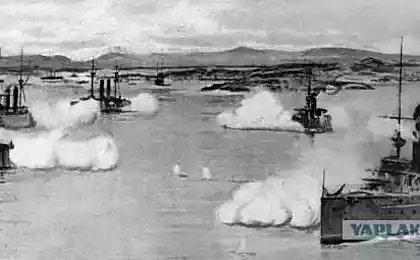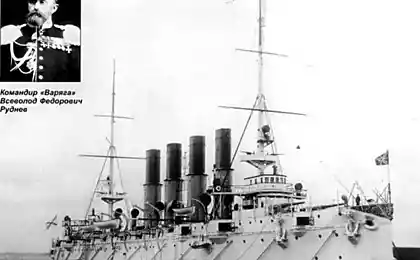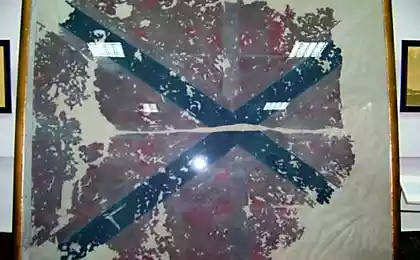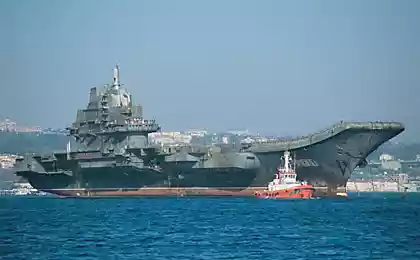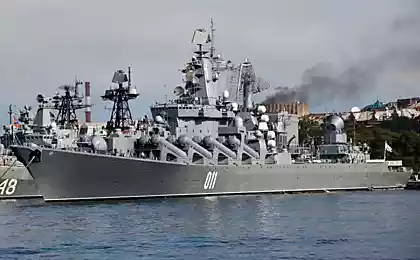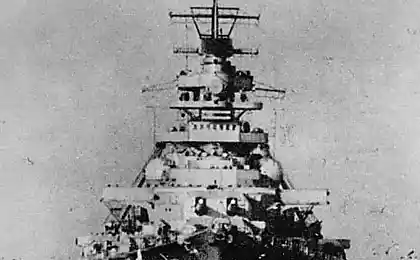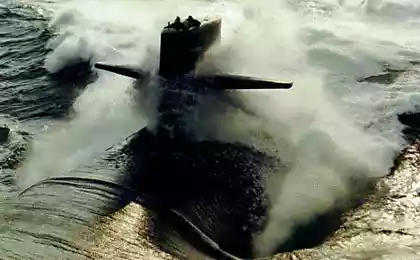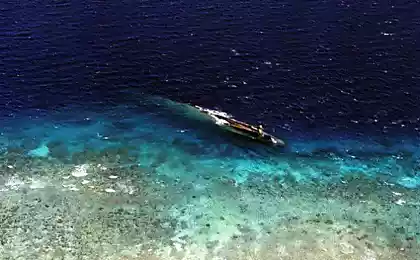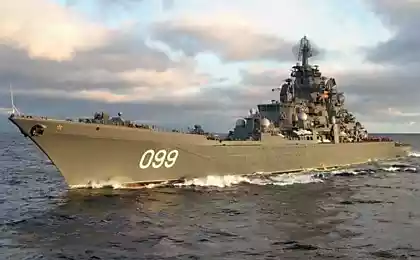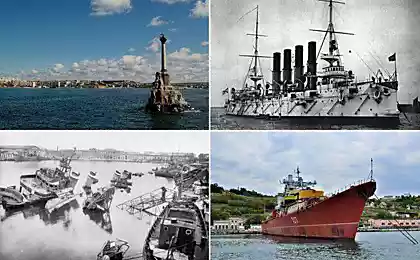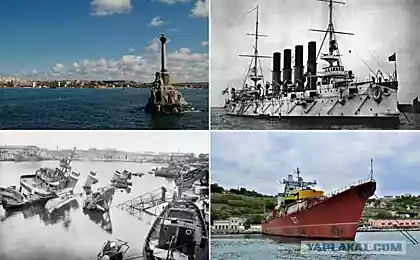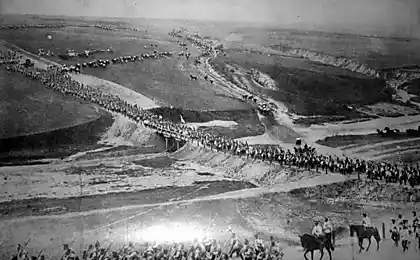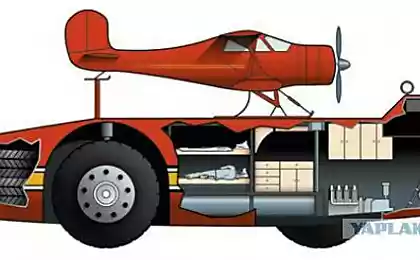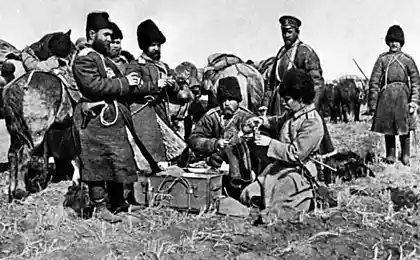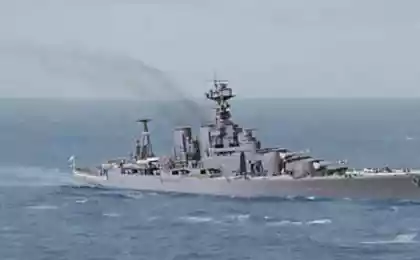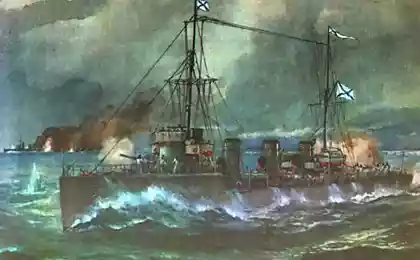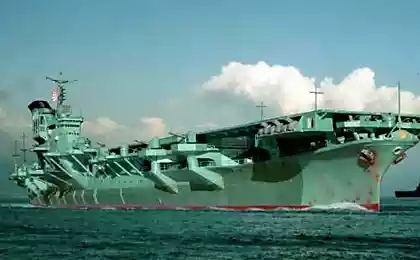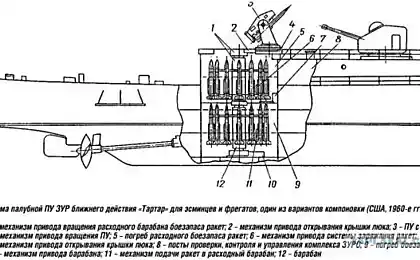723
Cruiser Varyag (7 photos)
Informative page
- Remember the song -
Upstairs, you, comrades, everything in its place,
Last comes the parade.
The enemy does not surrender our proud "Varyag»,
Mercy no one wants!
During the Russian-Japanese War, the Russian navy cruiser "Varyag" and gunboat "Korean" entered into an unequal battle against six Japanese cruisers and eight destroyers in the bay area Chemulpo. Heavily damaged "Varyag" is back to the harbor, and, unable to continue the battle, was flooded own team, and the gunboat was blown up.
Photos from the materials of the report US captain William Alexander Marshall, military analyst of Russian-Japanese war. He commanded the ship "Vicksburg", which is in the waters of Korea to monitor the conflict.
January 27 (February 9), 1904. At 11 hours and 20 minutes the cruiser "Varyag" and gunboat "Korean" weighed anchor and leave the neutral Korean port Chemulpo to join the battle with the Japanese squadron.
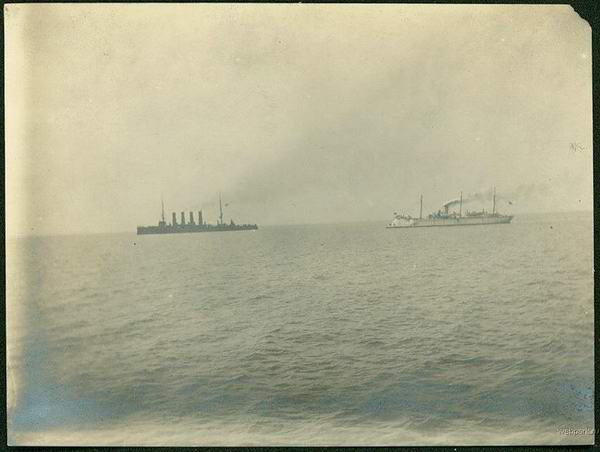
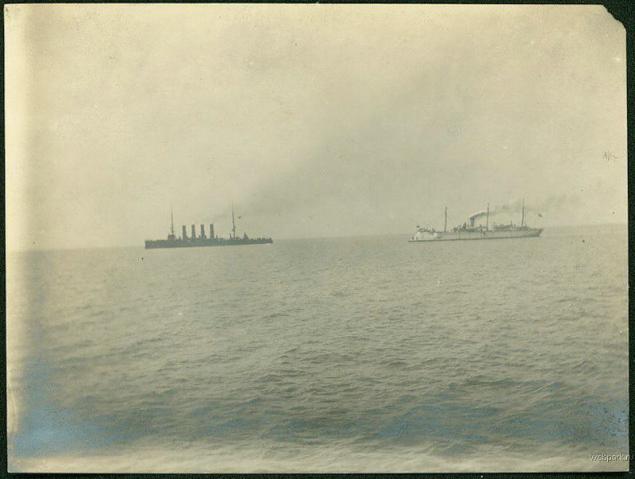
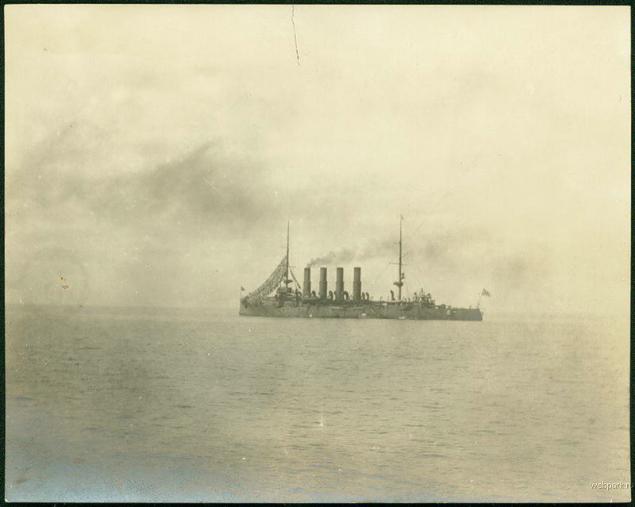
The cruiser "Varyag»
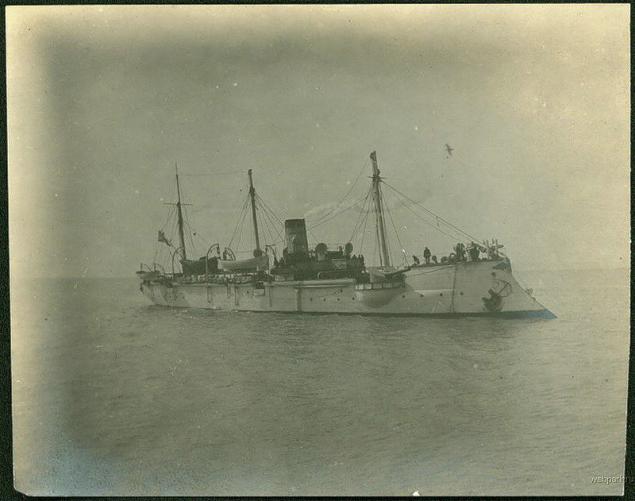
Gunboat "Korean»
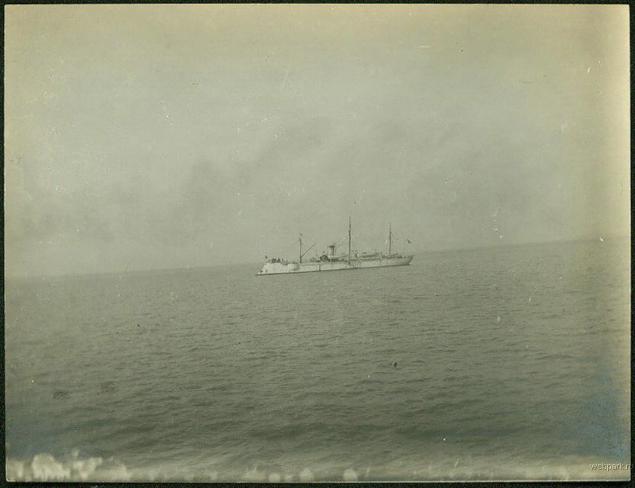
Gunboat "Korean»
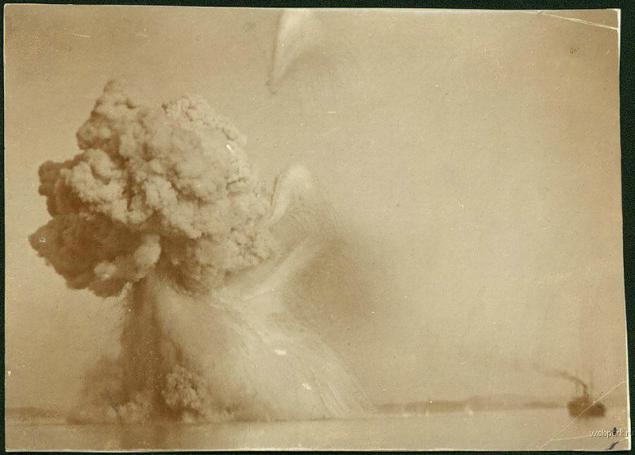
Explosion "Korean". 9 February 1904
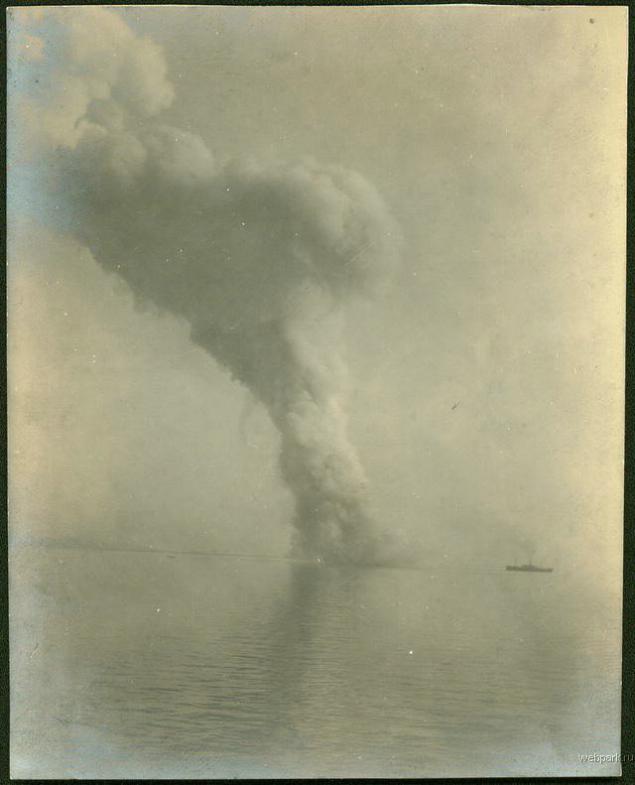
Explosion "Korean". 9 February 1904
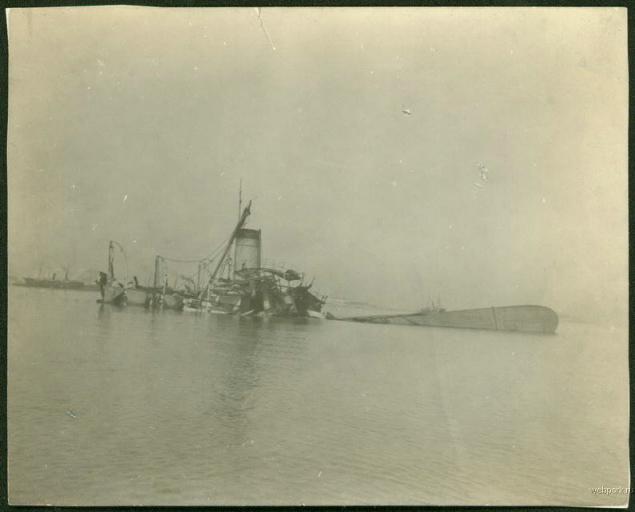
Blasted "Korean". February 18 1904, Chemulpo
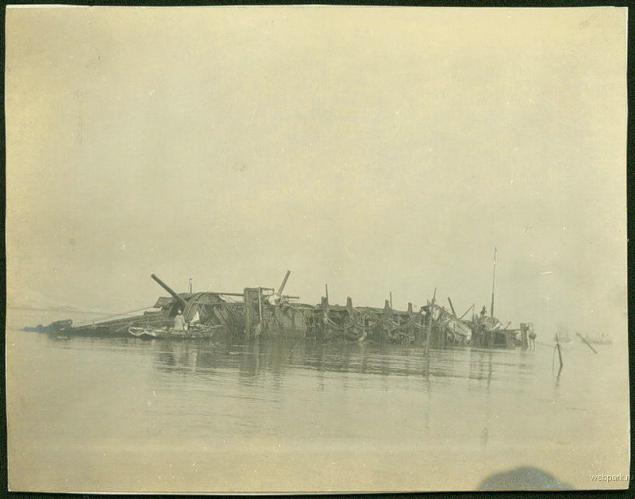
Flooded "Varyag". February 10 1904, Chemulpo
Impressed by the feat of the crew of the cruiser "Varyag" Austrian writer and poet, wrote a poem Rudolf Greynts «Der" Warjag "», devoted to this event. It was published in the tenth issue of the German magazine "Jugend". In April 1904, NK Melnikov and EM Studensky published a translation of this poem. And each of them had its own version. Translation E. Studensky Russian society was recognized more successful. Soon, the musician of the 12th Astrakhan Grenadier Regiment A. Turishchev, who took part in a solemn meeting of the heroes of "Varyag" and "Korean", put those poems to music. For the first time the song was performed at a gala reception hosted by Emperor Nicholas II in honor of the officers and men of the "Varyag" and "Korean».
The song became very popular in Russia. Especially loved her sailors. During the First World War, the song has been removed from the third verse, as the Japanese in this war were already allies. And the author of the song, too, tried to forget.
After the Civil War, many military songs Czarist Russia came under the ban, and only with the beginning of World War II, many of them were returned, including the song "Varyag».
Upstairs, you, comrades, everything in its place,
Last comes the parade.
The enemy does not surrender our proud "Varyag»,
Mercy no one wants!
All pendants are twisted and the chain rattle,
Top anchor lifting,
Prepare for battle in a series of tools,
The sun shining ominously!
From the pier true we go into battle,
Towards the impending death of us,
For the Motherland in the open sea to die,
Where waiting yellow-skinned devils!
Whistles and rattles and rumbles all around.
The thunder of guns, shells hissing,
And he became our immortal and proud "Varyag»
Similar to utter hell.
In the dying body tremble and austere,
The thunder of guns, and smoke, and groans,
And the ship is covered by sea of fire,
As the moment of farewell.
Farewell, comrades! With God, hurray!
Boiling sea beneath us!
Do not think, my friends, we are with you yesterday,
What is now going to die beneath the waves.
Do not say no stone, no cross, which formed
When we honor Russian flag,
Only the waves of the sea glorify one
Heroic death of "Varyag»!
-
- Remember the song -
Upstairs, you, comrades, everything in its place,
Last comes the parade.
The enemy does not surrender our proud "Varyag»,
Mercy no one wants!
During the Russian-Japanese War, the Russian navy cruiser "Varyag" and gunboat "Korean" entered into an unequal battle against six Japanese cruisers and eight destroyers in the bay area Chemulpo. Heavily damaged "Varyag" is back to the harbor, and, unable to continue the battle, was flooded own team, and the gunboat was blown up.
Photos from the materials of the report US captain William Alexander Marshall, military analyst of Russian-Japanese war. He commanded the ship "Vicksburg", which is in the waters of Korea to monitor the conflict.
January 27 (February 9), 1904. At 11 hours and 20 minutes the cruiser "Varyag" and gunboat "Korean" weighed anchor and leave the neutral Korean port Chemulpo to join the battle with the Japanese squadron.



The cruiser "Varyag»

Gunboat "Korean»

Gunboat "Korean»

Explosion "Korean". 9 February 1904

Explosion "Korean". 9 February 1904

Blasted "Korean". February 18 1904, Chemulpo

Flooded "Varyag". February 10 1904, Chemulpo
Impressed by the feat of the crew of the cruiser "Varyag" Austrian writer and poet, wrote a poem Rudolf Greynts «Der" Warjag "», devoted to this event. It was published in the tenth issue of the German magazine "Jugend". In April 1904, NK Melnikov and EM Studensky published a translation of this poem. And each of them had its own version. Translation E. Studensky Russian society was recognized more successful. Soon, the musician of the 12th Astrakhan Grenadier Regiment A. Turishchev, who took part in a solemn meeting of the heroes of "Varyag" and "Korean", put those poems to music. For the first time the song was performed at a gala reception hosted by Emperor Nicholas II in honor of the officers and men of the "Varyag" and "Korean».
The song became very popular in Russia. Especially loved her sailors. During the First World War, the song has been removed from the third verse, as the Japanese in this war were already allies. And the author of the song, too, tried to forget.
After the Civil War, many military songs Czarist Russia came under the ban, and only with the beginning of World War II, many of them were returned, including the song "Varyag».
Upstairs, you, comrades, everything in its place,
Last comes the parade.
The enemy does not surrender our proud "Varyag»,
Mercy no one wants!
All pendants are twisted and the chain rattle,
Top anchor lifting,
Prepare for battle in a series of tools,
The sun shining ominously!
From the pier true we go into battle,
Towards the impending death of us,
For the Motherland in the open sea to die,
Where waiting yellow-skinned devils!
Whistles and rattles and rumbles all around.
The thunder of guns, shells hissing,
And he became our immortal and proud "Varyag»
Similar to utter hell.
In the dying body tremble and austere,
The thunder of guns, and smoke, and groans,
And the ship is covered by sea of fire,
As the moment of farewell.
Farewell, comrades! With God, hurray!
Boiling sea beneath us!
Do not think, my friends, we are with you yesterday,
What is now going to die beneath the waves.
Do not say no stone, no cross, which formed
When we honor Russian flag,
Only the waves of the sea glorify one
Heroic death of "Varyag»!
-
